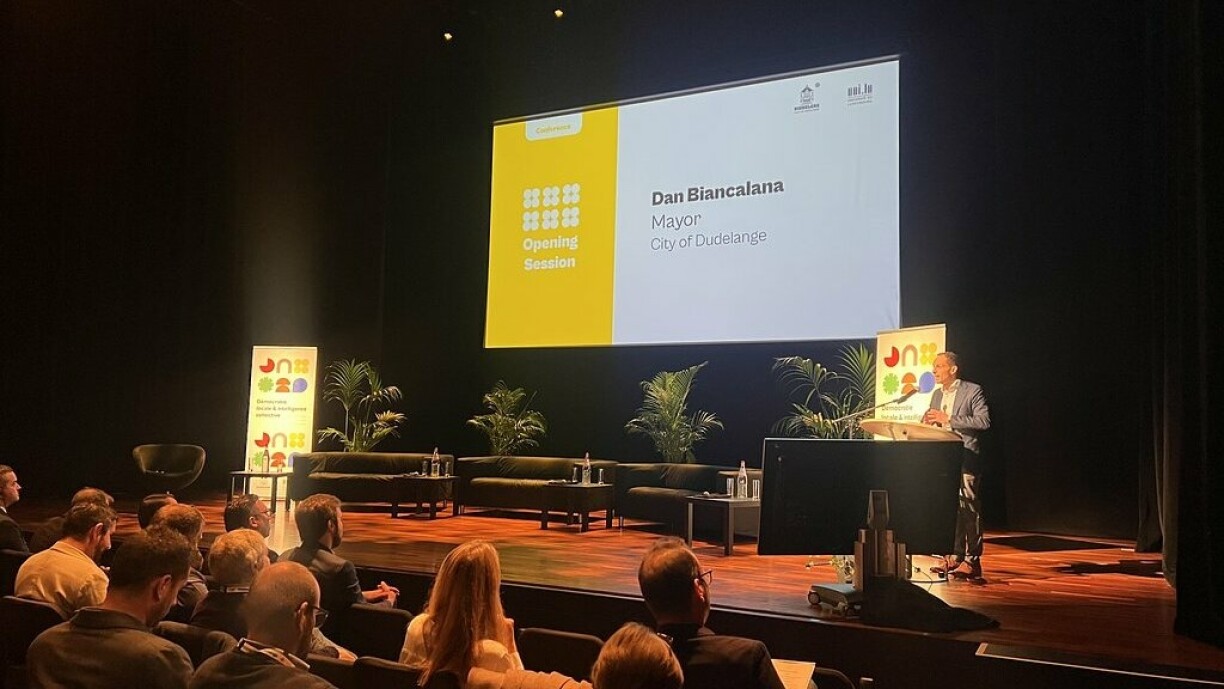
At a time when trust in democracy is increasingly under pressure across Europe, municipalities are playing an ever more important role. It is at the local level where politics remains closely connected to people’s everyday lives, where citizens’ demands can be addressed quickly and directly.
The city of Dudelange sees itself as part of this shift, actively shaping the process of democratic renewal. On Friday, the town concluded a five-year phase of intense democratic experimentation with a closing conference.
In partnership with the University of Luxembourg, Dudelange embarked on a joint project aimed at testing new forms of citizen participation, with the goal of making local democracy more open, transparent, and inclusive. The municipality had already started along this path back in 2004 with the creation of a citizens’ forum. In 2020, this momentum was formalised through a collaborative research-action convention with the university, turning Dudelange into something of a laboratory for modern local democracy, a place where new participatory tools were not only trialled but also studied in depth.
Mayor Dan Biancalana of the Luxembourg Socialist Workers’ Party (LSAP) explained that the aim was to engage citizens in a meaningful way and tap into their expertise, to see whether the political direction being taken matched public expectations. He stressed that this approach was not about challenging elected representatives or representative democracy, rather, it was about enhancing it. The participatory process, he said, had proven to be a “win-win”, bringing added value by enriching political ideas with citizen input.
At the heart of the project were several tools designed to strengthen local participation. These included a broad public consultation combining digital and in-person engagement, a smaller representative citizens’ council responsible for drawing up detailed recommendations, and youth and children’s councils to involve younger residents early on in democratic processes.
Another key element was the participatory budget. As Dudelange alderman Loris Spina of the LSAP explained, residents were able to submit project proposals, which were then reviewed by the municipality to ensure feasibility and legal compatibility. Approved projects were put to a public vote, and those that received the most support had to be implemented by the municipality, with no exceptions. Spina stressed that, if people choose a project, it gets carried out exactly as decided, adding that the municipality does not get to pick and choose based on preference.
These tools were intended to explore how local authorities can improve their decision-making processes. The findings from the past five years are clear: participation only works if it is transparent, well-organised, and inclusive. Many residents said they felt more informed and responsible thanks to the clearly defined structures. This, in turn, helped to build trust, according to Dr. Raphaël Kies from the University of Luxembourg.
He noted that trust is fostered when citizens understand the legitimacy of such processes, which is based on the representativeness of the participants and their ability to deliberate with experts. Their representativeness and their ability to engage in debates is, according to Dr Kies, a double legitimacy of the democratic process.
The conference was also attended by mayors from neighbouring municipalities. During a roundtable discussion, they exchanged views on their own experiences with participatory democracy and discussed how Dudelange’s approach might be applied in other local contexts.